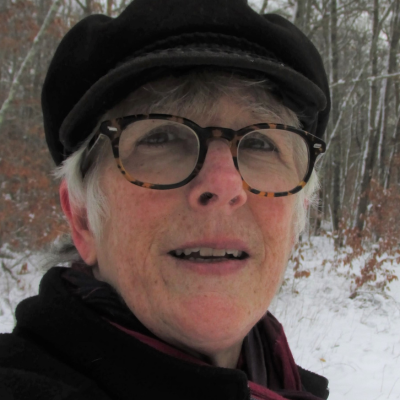A D’var Torah for Parshat Bamidbar
There is a picture over my desk: a Baltimore oriole, brilliantly orange with a dark black hood and attractively white-striped wings, perched on the bough of a tree. The background is a blur of golden-green, and above the oriole the words of Henry David Thoreau are inscribed: “In wildness is the preservation of the world.”
Parshat Bamidbar opens the Book of Numbers with a reminder to its readers: This whole people-forming experience — the deliverance from Egypt, the giving and acceptance of the Covenant at Sinai, the formative years of learning how to live in accordance with God’s many laws — is all taking place in a wilderness.
Find more commentaries on Parshat Bamidbar.
The portion’s first verse also reminds us that within this wilderness, the Israelite people, in accordance with God’s instructions, have fashioned a tent-sanctuary (the ohel moed or mishkan), which was to function as a particular meeting-place between Moses and God, between Aaron and his priestly descendants and God, and, through this mediation, between the people and God:
Thus THE ETERNAL spoke to Moses in the wilderness of Sinai, in the Tent of Meeting… (Numbers 1:1)
Moses is given instructions to take a census of the male Israelites, according to their tribes and clans. From this numbering of the people comes the English title of the book, “Numbers.”
Now numbering, taking a detailed account of people or of objects, seems to me to be a quintessentially human activity, something related to our tendency to try to quantify and manipulate the world — more related to civilization or technology than to wildness. As an environmentally-concerned reader, I would love for God to speak to Moses here and tell him to impart to the people lessons about the wonder of the natural world, about how they should be careful not to spoil it, to walk through this wilderness with a light footprint. Instead, Moses gets instructions on enrolling men from the age of 20 and up for possible conscription in an Israelite army.
If “wildness” is a factor in the preservation of the world (and certainly today, with so much ecological devastation impinging upon us, we know that it is), why does this narrative of the formation of the Jewish people not make more of it? In so much of the Torah, the wilderness is there: in the occupation of our nomadic shepherd patriarchs and matriarchs, who rarely lived in fixed houses; in the mystical dream-encounter of Jacob, who first realized God’s presence in a lonely place in the desert where he slept with a rock for his pillow; in the story of Moses encountering the God of “I-will-be-what-I-will-be” while out alone in the backcountry searching for a lost sheep. Further, the Psalms out of which we have formed so much of our liturgy emphasize the natural connection of the individual to God through nature (for instance: “Your works, ETERNAL, make me glad; I sing with joy of Your creation” –Psalm 92, the “Song of Shabbat”).
And yet when God speaks about the way the people as an entity are to live, God seems to emphasize the things that are needed when people come together. Much as we all hate war, we know that in the course of human history the need of nations to be ready to defend themselves against aggressor-nations cannot be ignored. And there is much in the Torah’s legislation that is oriented toward respecting the earth when it comes to agricultural practices — agriculture being the domain of settled people, almost the direct opposite of wildness.
Find more commentaries on Environmental Justice.
Enter shmita, the sabbatical year, first introduced in Exodus 23:10-11 and then expounded at length — not coincidentally, I believe — in last week’s double parshah, right before the shift into the book of Bamidbar, “in the wilderness.” God emphasizes the importance of granting the land its Sabbaths, during which whatever grows should be left for the poor and even for wild beasts that wander into a field or an orchard. This is a kind of “wildness” for the settled land. Every seven years, we make the settled land temporarily “wild” again, an injunction we read just as we are about to set out from Mt. Sinai into 40 years of wilderness travel on our way to the settled land of Canaan.
That the Torah addresses the concerns that civilization inevitably brings, along with awareness of the need for individuals to experience God in wilderness, seems to me a profound grappling with the needs both of human beings and of God’s non-human world. The environmental justice movement today helps us make the connection between degradation of the Earth and the degradation of people. Learning from the balance that the Torah strikes between these areas of concern, I would say that the world is preserved not in wildness per se, but in the awareness of how all these areas of concern are inextricably interwoven with one another within God’s tapestry of Creation.
Shoshana Brown is the cantor and co-spiritual leader of Temple Beth El in Fall River, MA. She is an avid hiker, writer, and nature-photographer. She was a participant in one of T’ruah’s first Communities of Practice in 2021-22.

